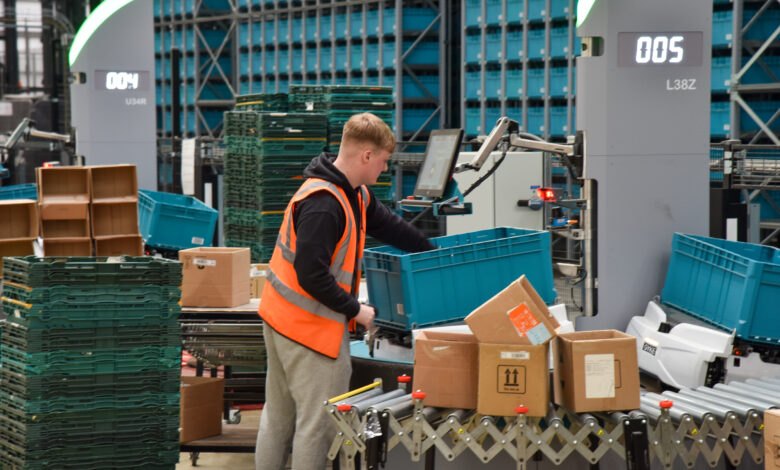
The hospitality industry has always been about connecting people. Creating memorable experiences, offering warm welcomes, and building lasting community connections are at the heart of what hospitality vendors do best.
In recent years, however, technology has become an increasingly vital part of creating customer experience. AI, in particular, is proving to be a powerful tool for reducing costs, optimising staffing, and enhancing guest satisfaction.
From front-of-house to behind-the-scenes, AI is quietly reshaping how hotels, restaurants, and venues operate. Here’s how AI is helping the hospitality sector get to the next level.
Personalised Experiences That Guests Actually Notice
Personalisation has long been a hallmark of excellent hospitality. With AI, this goes beyond remembering a name – it means anticipating needs before they’re expressed.
By analysing guest data such as visit history, preferences, and even sentiment from online reviews, AI enables businesses to tailor experiences at scale. Think personalised thank-you messages, birthday discounts, dietary preference tracking, favourite dish recommendations, and even VIP perks.
However, it’s crucial to handle personal data responsibly. Always ensure customer privacy is respected and secure consent before collecting or using their information.
Tackling Staffing Challenges
Staffing remains one of the biggest challenges in hospitality. AI is stepping in to help with smarter scheduling and workforce optimisation.
AI tools can forecast busy periods and recommend optimal staffing levels, reducing both under- and overstaffing. Some platforms also match temporary workers with shifts based on availability, experience, and location, making it faster and easier to fill last-minute gaps.
There’s also increasing adoption of AI-driven training tools that use simulations or interactive modules to onboard staff more efficiently, which is especially useful during seasonal peaks or when expanding teams quickly.
The right staffing platform is one that works not only for customers and venues, but also for workers. Ethical staffing platforms prioritise fair pay, flexibility, and transparent scheduling, while adjusting wages in line with demand. The right staffing solution creates a win-win for all parties, delivering a better experience for guests while respecting the needs of the workforce.
Smarter Pricing, Less Guesswork
Pricing in hospitality has always been complex. AI is helping remove much of the uncertainty.
Rather than relying solely on historical data, AI tools can dynamically adjust rates based on real-time demand, competitor pricing, local events, or booking trends. For example, corporate bookings or quieter mid-week slots can be priced more strategically, or discounts introduced, to maximise occupancy and revenue.
In addition, AI helps reduce booking errors, identify fraudulent activity, and detect patterns, making pricing not only smarter but more secure.
Smoother Day-to-Day Operations
In fast-paced environments like restaurants and hotels, operational efficiency is key, with AI playing a greater role for management teams.
In kitchens, AI can assist with inventory and waste management by monitoring ingredient usage and predicting demand. This reduces over-ordering, minimises spoilage, and saves on costs. Small changes can add up significantly in a tight-margin industry.
Across the board, AI-powered automation helps streamline everyday processes and frees up staff to focus more on delivering great service.
Supporting Sustainability Goals
With growing customer sentiment towards supporting ethical businesses, sustainability is imperative for hospitality venues everywhere. AI is a valuable partner in reducing environmental impact.
Smart systems can optimise energy use by adjusting lighting, heating, and cooling based on room occupancy. In kitchens, AI can track food waste and help adjust future ordering accordingly. Some hotels are even using AI to monitor water consumption in laundry and landscaping operations.
These efficiencies not only support sustainability goals but also drive cost savings, proving that going green can be good for business too.
Turning Data Into Insights
Hospitality businesses generate huge volumes of data. From guest reviews and booking patterns to spending habits and employee performance, AI can transform this raw data into actionable insights.
For instance, AI dashboards can help managers understand why bookings dipped in a previous quarter, identify high-performing marketing campaigns, or predict guest demand during peak seasons.
Especially in a sector vulnerable to rapid change, such as economic shifts, global events, or fluctuating consumer behaviour, access to real-time, data-driven insights empowers better, faster decisions.
The goal of AI isn’t to replace people but to support them. By automating repetitive tasks and surfacing helpful insights, AI frees staff to focus on creating meaningful connections with guests.
There are also ethical considerations to bear in mind. Businesses must be transparent about how guest data is used, and ensure that AI systems are fair, secure, and accountable.
Finding the right balance between human warmth and technological efficiency will be key to building lasting trust and value.
As the technology continues to evolve, the businesses that adopt AI thoughtfully and ethically will be best positioned to lead. Because when used well, AI isn’t just about efficiency—it’s about delivering more memorable, personalised, and sustainable experiences for everyone.




